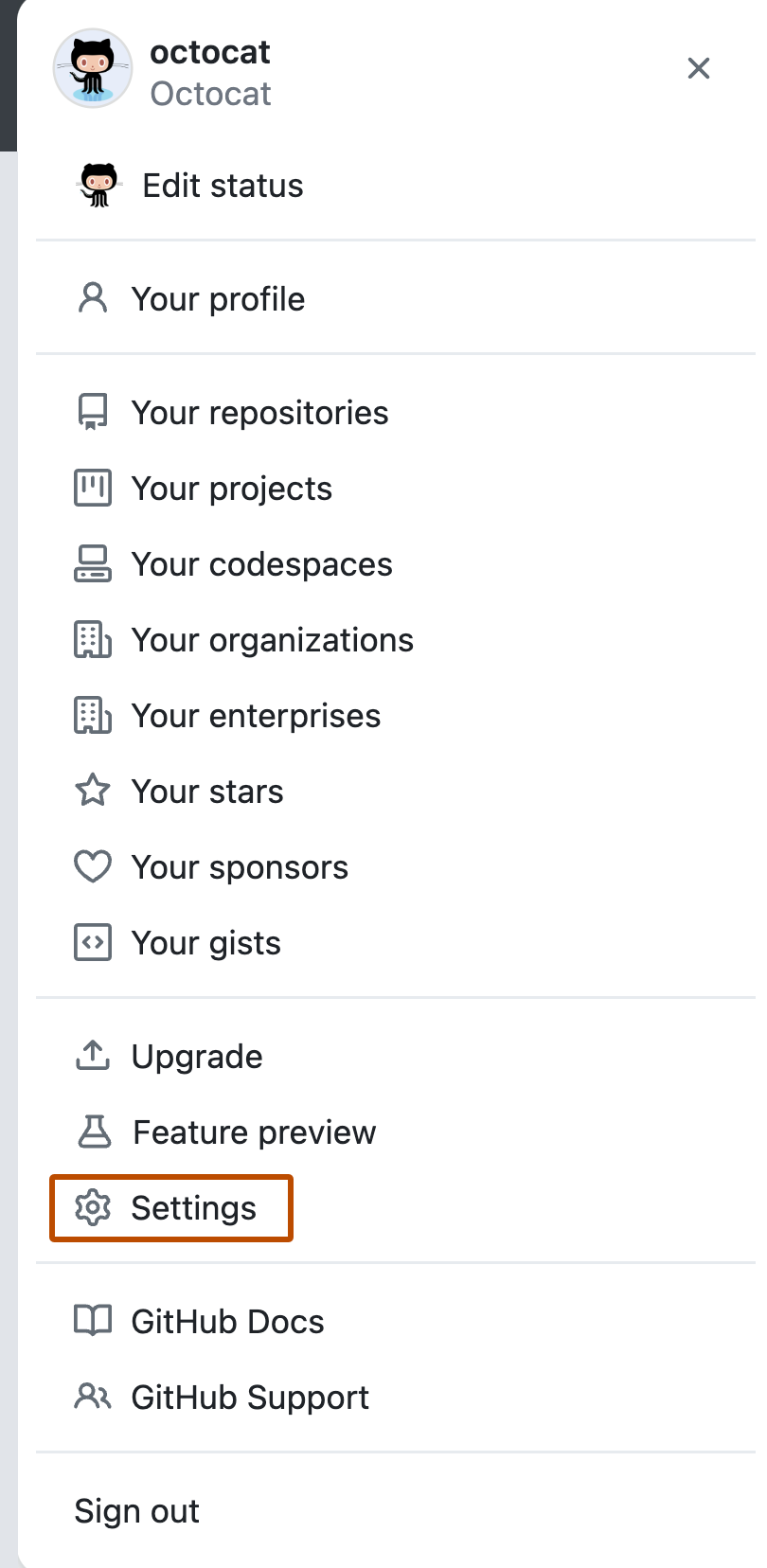Accessing your security log
The security log lists all actions performed within the last 90 days.
-
In the upper-right corner of any page, click your profile photo, then click Settings.

-
In the "Archives" section of the sidebar, click Security log.
Searching your security log
The name for each audit log entry is composed of a category of events, followed by an operation type. For example, the repo.create entry refers to the create operation on the repo category.
Each audit log entry shows applicable information about an event, such as:
- The enterprise or organization an action was performed in
- The user (actor) who performed the action
- The user affected by the action
- Which repository an action was performed in
- The action that was performed
- Which country the action took place in
- The date and time the action occurred
- For actions outside of the web UI, how the user (actor) authenticated
Note that you cannot search for entries using text. You can, however, construct search queries using a variety of filters. Many operators used when querying the log, such as -, >, or <, match the same format as searching across GitHub Enterprise Server. For more information, see "About searching on GitHub."
Search based on operation
Use the operation qualifier to limit actions to specific types of operations. For example:
operation:accessfinds all events where a resource was accessed.operation:authenticationfinds all events where an authentication event was performed.operation:createfinds all events where a resource was created.operation:modifyfinds all events where an existing resource was modified.operation:removefinds all events where an existing resource was removed.operation:restorefinds all events where an existing resource was restored.operation:transferfinds all events where an existing resource was transferred.
Search based on repository
Use the repo qualifier to limit actions to a specific repository. For example:
repo:"my-org/our-repo"finds all events that occurred for theour-reporepository in themy-orgorganization.repo:"my-org/our-repo" repo:"my-org/another-repo"finds all events that occurred for both theour-repoandanother-reporepositories in themy-orgorganization.-repo:"my-org/not-this-repo"excludes all events that occurred for thenot-this-reporepository in themy-orgorganization.
Note that you must include the account name within the repo qualifier and put it in quotes or escape the / with a \; searching for just repo:our-repo or repo:my-org/our-repo will not work.
Search based on the user
The actor qualifier can scope events based on who performed the action. For example:
actor:octocatfinds all events performed byoctocat.actor:octocat actor:hubotfinds all events performed byoctocatorhubot.-actor:hubotexcludes all events performed byhubot.
Note that you can only use a GitHub Enterprise Server username, not an individual's real name.
Search based on the action performed
The events listed in your security log are triggered by your actions. Actions are grouped into different categories. For the full list of events in each category, see "Security log events."
| Category name | Description |
|---|---|
oauth_authorization | Contains all activities related to authorizing OAuth apps. For more information, see "Authorizing OAuth apps." |
profile_picture | Contains all activities related to your profile picture. |
project | Contains all activities related to projects (classic). |
public_key | Contains all activities related to your public SSH keys. |
repo | Contains all activities related to the repositories you own. |
team | Contains all activities related to teams you are a part of. |
two_factor_authentication | Contains all activities related to two-factor authentication. |
user | Contains all activities related to your account. |